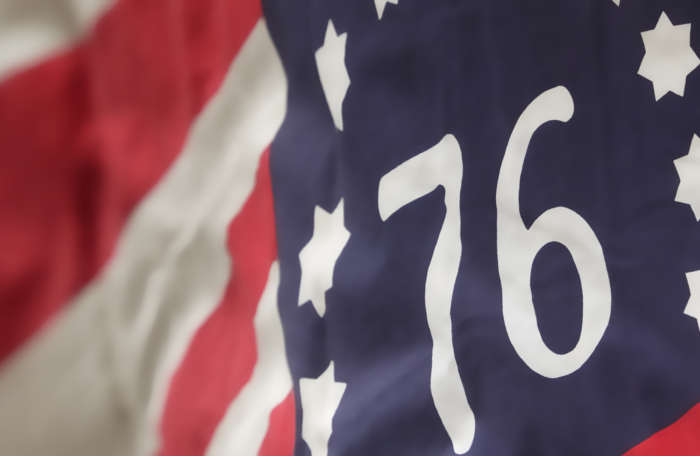Would the Founders consider us free?
On July 4th, Americans celebrate not just the formation of our nation, but the inspiring ideals of the second paragraph of the Declaration of Independence. It’s currently fashionable to question whether Americans live up to those ideals, or ever have. But the predominant voices of doubt ask the wrong question.
The foundational question is not whether Americans have failed to achieve equal outcomes. The answer to this will always be no because perfect equality of outcomes is impossible.
The foundational question is this: Against what did the Founders rebel?
Historian Bernard Bailyn, in “The Origins of American Politics,” answered this question.
“The colonists universally agreed that man was by nature lustful, that he was utterly untrustworthy in power, unable to control his passion for domination. The antinomy of power and liberty was accepted as the central fact of politics, and with it the belief that power was aggressive, liberty passive, and that the duty of free men was to protect the latter and constrain the former.”
The Founders cited “corruption” constantly, and by this they meant the abuse of government power to distribute favors, offices, riches and influence among a small group of connected aristocratic elites.
New Hampshire’s colonial government worked exactly this way. Colonial Gov. Benning Wentworth “packed the Council with his supporters, intervened successfully in local elections, bought the favor of the representatives he did not select, and filled the local offices—‘judges and justices…the secretary, treasurer, sheriff, register of probate, and the military officers’—with his own men,” Bailyn wrote.
The Pine Tree Riot in Weare on April 14, 1772, was a reaction against this extraordinary level of elite domination of New Hampshire’s economy.
Marxist and Progressive historians asserted that the primary antagonists in the American Revolution were the rich vs. poor or the propertied vs. unpropertied. Later historians demonstrated conclusively that this was nonsense. As historian Gordon S. Wood put it, the actual antagonists were courtiers vs. patriots.
John Adams described courtiers as those who worked to please and flatter great men “to obtain their smiles, esteem, and patronage, and consequently their favors and preferences.” Patriots were the outsiders who owed their station in life to their own striving rather than to crown patronage.
“Only by understanding the hierarchical structure of monarchical society and taking the patriots’ assault on courtiers seriously can we begin to appreciate the significance of the displacement of the loyalists,” Wood wrote in his Pulitzer-winning “The Radicalism of the American Revolution.”
Progressives get right that there have always been outsiders and insiders in American society, and insiders always seek to use the power of the state to maintain their insider status. What they get wrong is that the solution is to hand more power to the insiders.
The Founders believed the opposite. They strove to create political, economic and legal systems that limited and constrained the power of insiders, then distributed much of that power to outsiders.
We at the Josiah Bartlett Center for Public Policy obviously take the patriots’ side in this debate. (We named our organization after one of them, after all.)
When we look at state and local government in New Hampshire today, we try to keep the Spirit of ‘76 alive by asking whether current policies divide Granite Staters into insiders vs. outsiders. Or as the Founders might have understood it, whether they create courtiers.
When we write about licensing, housing, education, energy, regulation, the budget, taxation, health care, transportation and any other issue, we’re looking for this dichotomy.
Unfortunately, we find it often. From guild-inspired occupational licensing laws to green energy subsidies to local land use regulations that price homes out of the reach of middle-and lower-income families, New Hampshire has too many laws, ordinances and regulations designed to turn patriots into courtiers.
The purpose of the American project was to replace a system of courts and courtiers with a system of decentralized powers wielded disinterestedly by free and independent citizens.
The independence is the point. That doesn’t mean every American is an island. Families, friends, communities, organizations—Burke’s little platoons—connect us and support us in critical ways. Independence means independence from government control or coercion.
Free markets empower individuals (and the social networks they create voluntarily) to live as they desire—to pursue happiness, in other words. They strengthen our independence and weaken the state’s power to coerce (to convert patriots into courtiers).
The Founders likely would be amazed at the social and political equality Americans have created, and at the levels of freedom we have achieved. But they’d also recognize too many remnants of their aristocratic age (as well as our tax rates). If we want to live up to the Revolution’s ideals, it’s our task to tear down those remaining fragments. When we replace mandates with markets, we convert courtiers into patriots. That should be every American’s goal.



